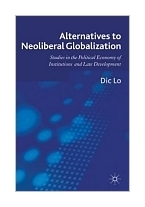|
||
• wydawnictwa polskie
• Zamów informacje o nowościach z wybranego tematu • kontakt
• Cookies na stronie |
ALTERNATIVES TO NEOLIBERAL GLOBALIZATION: STUDIES IN THE POLITICALDIC LO / ECONOMY OF INSTITUTIONS NAD LATE DEVELOPMENTwydawnictwo: PALGRAVE MACMILLAN , rok wydania 2011, wydanie Icena netto: Alternatives to Neoliberal Globalization:Studies in the Political Economy of Institutions and Late DevelopmentThrough a compliance with the neoliberal doctrines associated with the Washington
Consensus, and the corresponding emphasis on the privitization of public assets, the
promotion of well-defined property rights and a focus on price and trade liberalisation,
developing countries have been promised that 'natural economic institutions' will form.
However, despite the promotion of these doctrines, the 1980s and 1990s have come to be
known as the 'lost decades of development': a period of long economic stagnation in most
parts of the developing world, with little sign of the income level of the developing
world converging with that of developed countries. In this book, Dic Lo re-examines the
mainstream policy doctrines of globalization, and formulates explanations for the uneven
development of recent years. DIC LO is Senior Lecturer in Economics and Chair of the Centre of Chinese Studies at the School of Oriental and African Studies, University of London, UK. He is also Co-Director of the Center of Research in Comparative Political Economy at the Renmin University of China. His research focuses on Chinese economic transformation, East Asian economic institutions and development, and comparative political economy. He is the author of Market and Institutional Regulation in Chinese Industrialization, 1978-94 and China's Transformational Growth: A Structural-Institutional Analysis. Table of Contents Overview Theoretical and Policy Doctrines Conclusions 208 pages, Hardcover Księgarnia nie działa. Nie odpowiadamy na pytania i nie realizujemy zamówien. Do odwolania !. |


